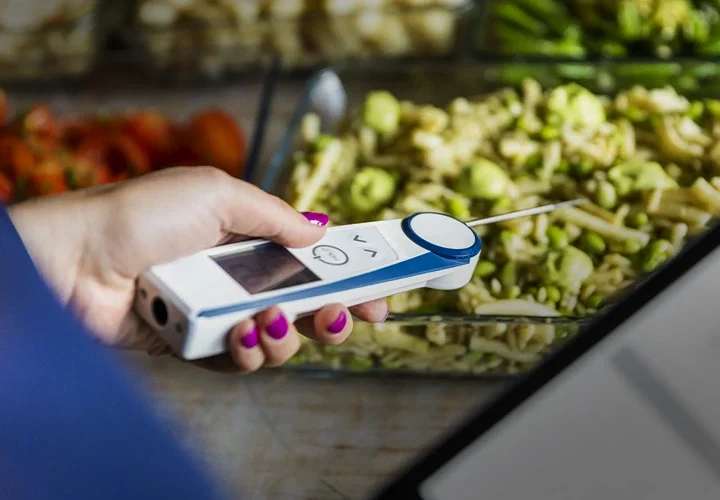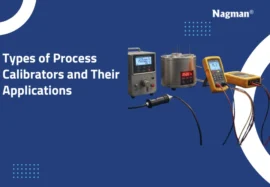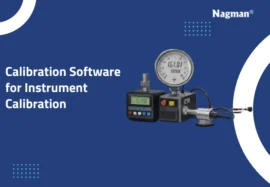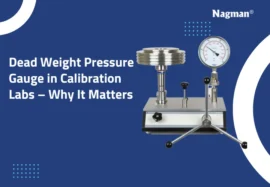How can you tell if a food product is safe to consume? Calibration is the most effective technique to ensure the safety of your products. Calibration guarantees that your scales, thermometers, and other test and measuring equipment in food manufacturing industries are accurate and precise, allowing them to be used in quality assurance during manufacturing. Quality assurance is vital to success with customers and the industry in food safety systems. Calibration of Test and Measuring Instruments is a typical process in quality assurance. What does this imply in the food sector, and why is calibration so critical? Let’s take a look!
Calibration in the Food Industry – What does it mean?
Calibration verifies an instrument or piece of processing equipment’s readings to those obtained by a standard apparatus or a consensus standard with established precision or recognized values. It is how industry professionals ensure that the machinery can achieve and maintain the temperatures, pressures, and other process parameters designed to clean, treat, and preserve food. Calibration is a procedure that must be done regularly to decrease the risk of error. All food and safety-related measuring instruments must be calibrated against standards, certified equipment, and a new or recently certified item that can be traced to a standard as a reference. Don’t forget to calibrate equipment regularly to avoid violations of food safety laws. It is not only risky for customers, but it can also result in prosecution and sanctions for the firms involved.
Why is Calibration Necessary in the Food Industry?
Calibration of equipment and instruments is critical in the food and beverage sector for quality assurance and compliance. When the equipment regulating physical, chemical, or biological dangers in a food operation malfunctions slightly, the food product is ruined, and the customer is put at risk. Calibrated instruments provide the maximum level of precision, reducing mistakes and dangers while establishing parameters that can fall within acceptable ranges. Measurement inaccuracies can result in a product being unfit for consumption, resulting in greater waste costs. Any food product that does not meet regulatory bodies’ and customers’ high criteria will cost a firm a lot of time, energy, and materials. Calibrated equipment with process calibrators also provides the maximum level of precision, decreasing mistakes to tolerable levels. Calibration reports aid in internal and external audits since they are traceable to national or international standards. Furthermore, regular testing makes it easy to guarantee that equipment performs at peak efficiency, decreasing failures and increasing lifespan. It increases efficiency, uptime, and cost savings in maintenance, energy consumption, production losses owing to frequent downtime, etc.
Which Equipment Needs Calibration in the Food Industry?
Calibrations must be completed on all instruments used to measure and monitor in a food processing plant. The food sector is littered with transducers, which include thermometers, position sensors, and pressure sensors. Measuring and adjusting transducers with a precision pressure controller can help minimize fluctuations or misreadings during processing, affecting the food product’s safety, cleanliness, and overall quality. Determining if the thermometers responsible for gauging the right temperatures report the information is known as thermometer calibration. It’s a quick and easy procedure, and all businesses must include probe thermometer calibration as a regular activity in their food safety strategy. Among the other pieces of equipment are:
- pH meters to monitor fermentation in dry-cured meats and low-acid and acidified goods.
- Water Activity Metres (Aw) to track the ageing of dry-cured and fermented foods.
- Weight scales that verify regulatory additive and antibacterial agent limitations are met.
- Infrared temperature sensors for product and human monitoring.
- Any digital instrument, as analog circuitry performance, varies over time.
Wrapping Up
Organisations can enhance food safety and quality management systems, reduce risks, and demonstrate regulatory compliance by following calibration criteria. It eventually contributes to the manufacturing of safe, high-quality food. When producing food products, food safety is of the utmost importance. Measuring equipment calibration assures accuracy and compliance with all quality and filling criteria. Nagman can help organisations meet these standards by doing calibrations and validations in the food sector. Whether your equipment includes torque, temperature, dimensional, or electrical equipment, Nagman has years of experience to help you choose the right calibrator – pressure calibrators or dry block calibrators for your particular needs! Get the highest quality calibrators for better food quality with Nagman!






